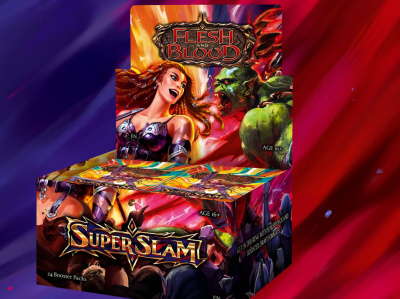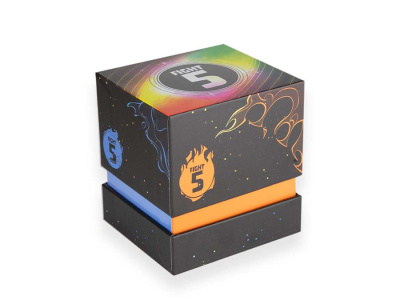What is your overall view of the manga market right now?
Marc Visnick: Over the past few years, we have all witnessed impressive demand for manga in the marketplace. According to Bookscan, book sales (including manga) have pulled back a little in 2023. While we have yet to see this pullback on our end, we are cautiously optimistic the adoption of manga will continue while the retail marketplace cools off a little.
We heard that Stu Levy is stepping back from Tokyopop in the U.S., where he’s been a fixture for over two decades, and Marc was recently promoted to publisher. Can you tell us how the company is changing?
Kae Winters: Tokyopop’s been through a lot of changes over the years, that’s for sure. When we returned to publishing back in 2016 we released seven new titles; in 2022 we published almost ten times as many! We consider ourselves a boutique publisher now, with plans to expand modestly in an effort to maintain quality over quantity, and continue to bring titles to fans that we personally believe in.
Stu’s been a major part of Tokyopop for so long, but with his own family now – and his move to Germany – we knew he’d step back eventually. Marc’s been a natural fit with our team, and we’re really excited to be moving forward with him at the helm.
How has the past year been for Tokyopop, and what (if anything) has changed since the beginning of the pandemic?
Winters: The pandemic was understandably an extra hurdle for every publisher, but for us it was timed exactly with the planned launch of our LOVE x LOVE imprint. Thankfully we were rewarded with an incredible response from fans, and that enabled us to continue to grow the imprint over the last couple of years. We’ve really settled into our position as a boutique publisher now, and this has been supported by readers, retailers and librarians.
What are your most popular genres? What are the fastest growing genres – not necessarily the largest but something that looks like it’s picking up steam?
Winters: Our motto for the last few years has been “manga for everyone,” and a big part of that for us is making sure we have a wide range of reading levels, genres, and series lengths. In particular romance is something we’ve been focused on, and we plan to continue expanding our LOVE x LOVE imprint.
You have published a lot of Disney manga. I know there’s a demand for all-ages manga – how have these titles been doing? Have you added any new Disney titles recently?
Winters: The biggest complaint we hear from booksellers and librarians regarding manga is that the covers are so misleading. You can see a fairly tame, colorful, and eye-catching cover with innocent artwork, only to find adult content a few chapters in. The Disney manga and other all-ages manga we print was our answer to this; if it’s vetted by Disney, you know it’s kid friendly and safe for little ones. We also want to see more kids reading, and if the only way they’ll do it is with a manga adaptation of a Pixar film they know inside out (no pun intended) then that’s a great starting point.
At the end of 2022 we released Marcy’s Journal: A Guide to Amphibia, based on a Disney Channel animated show. It’s not a manga title per se, but a reproduction of a journal that one of the characters keeps within the series. We worked closely with showrunner Matt Braly and his writing and art team to keep it as accurate and in character as possible, and the result was a success for us, both with manga fans and Disney fans alike.
Your upcoming catalog includes two nonfiction (I think!) manga, Why I Adopted My Husband and At 30, I Realized I Had No Gender. What sort of demand do you see for these? Have you published comparable books, and if so, how have they done?
Winters: You’re right, these are our first real foray into nonfiction, almost biographical manga titles. They’re pretty different to our normal listings, but for us it was an easy decision; we’ve been releasing more LGBTQIA+ titles and speak openly about our support for the queer community, and want to support these creators in telling what we consider to be very important, personal stories about their lives. It’ll be interesting to see how these sell into the market, and we’re hoping that fans embrace them.
Overall, how do your sales break out in terms of channel – retail bookstores, direct market, schools and libraries, everything else?
Visnick: In January of 2021, we partnered with Independent Publishers Group (IPG) to handle our trade distribution. From that point onward we have witnessed steady growth across all trade channels (independent booksellers, libraries, special markets, etc.). In the direct market, we are seeing similar growth, especially as shops allocate more shelf space for manga. Overall, both Barnes & Noble and Amazon continue to lead the charge when it comes to market share, but it has been especially nice to see the adoption of manga at independent booksellers and the increase of circulation at libraries across the country.
What sort of manga series do you think do best in the direct market? Are there others you think would do well there if given the chance?
Winters: That’s a tough question, and one we’re still exploring. It seems to largely come down to the shop owner, what their customers usually buy, and what they’re willing to experiment with. If all the customers only buy the big Marvel and DC releases then it makes sense to stick with action/adventure titles that scratch that same itch. But it can be worth branching out to expand the offerings and entice new customers to come inside. Of course the issue is usually shelf space, and trying new things is a risk for everyone.
For more Manga Week coverage, click here.









